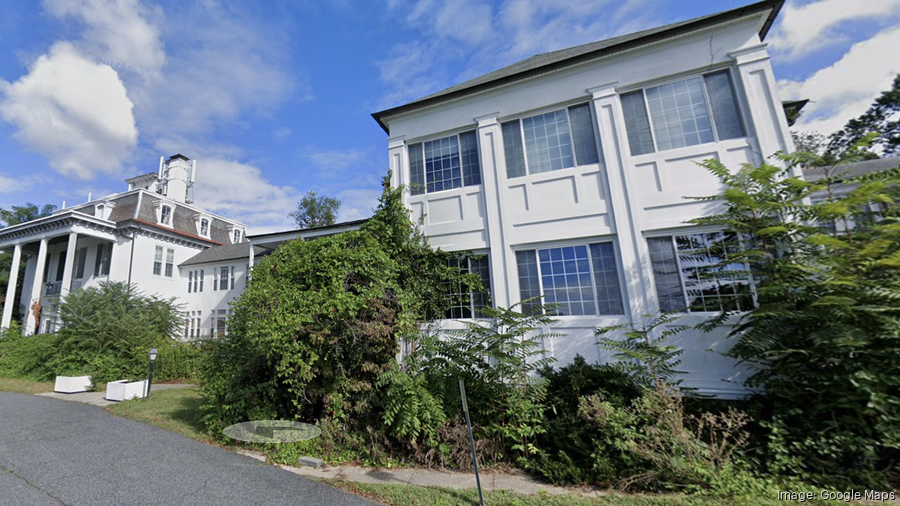Listen to this article 5 min
One of Maryland's largest senior housing providers bought an old mansion for $2 million earlier this month, with plans to use it for new senior housing.
Edenwald Senior Living purchased 400 Georgia Court in Towson for $2 million from the Presbyterian Home of Maryland on April 1, according to property records. Edenwald CEO Mark Beggs said he is still unsure if his company will tear down or renovate the 72,706-square-foot building, known as the Bosley Mansion. The Presbyterian Home used the property as a 100-bed senior living facility until 2016.
Beggs views the space as a long-term project. He wants to start the construction of a 127-bed facility at Goucher College later this year before solidifying plans for the Bosley Mansion. The company has already started to talk with neighborhood groups about the mansion and to go through the county approval process to put senior apartments on the site.The mansion was once owned by Grafton Bosley, whose donation of land that later became the Baltimore County Courthouse helped solidify Towson as the county seat.
Beggs plans to turn the old mansion into a more affordable housing complex than Edenwald’s other developments to tackle the “missing middle” in senior housing. People who are too wealthy to qualify for reduced-cost housing but not wealthy enough for Edenwald’s other facilities are often left with few options, Beggs said.
The proximity of the Bosley Mansion to amenities like a YMCA, for example, will help Edenwald build a less expensive facility. The walkability of the neighborhood also means it won’t be necessary to have every single thing people need within one building. He believes the facility will not house more than 90 apartments.
“People can live at Edenwald and never walk outside their doors,” Beggs said. “What we envision for [the mansion property] is that you move there because you don’t want to be segregated. You want to live in the community.”
Beggs is currently assessing whether people living near the mansion want to preserve the historic wing of the structure or if they would be open to Edenwald tearing it down. He hopes to demolish the building to make room for a facility with larger rooms and better amenities. The green space surrounding the site will be preserved for neighborhood use.
“One of the reasons it's been available for so long is that a lot of people look at it and think, ‘Oh, I'm just gonna build this thing out to as many units as you can on it,’" Beggs said. “And really, that's not what the neighborhood wants.”
The idea of developing the old Bosley Mansion is controversial. Local historical societies have attempted to declare the building a historic property and past attempts to turn the site into condominiums failed.
Campaigns to get the Bosley Mansion named a historic property have failed for the same reason that Beggs believes it would be more cost-effective to demolish the building than renovate it: the patchwork nature of the construction from countless owners over the decades. There are parts of the building that date back to 1887, but other wings of the facility were constructed in the 1980s. The remaining wings of the Bosley Mansion have changed so much they are not historic anymore, Beggs said.
The mansion project is just one example of how senior living providers are expanding as the aging population across the United States needs more services and housing facilities. Brightview Senior Living plans to build several new senior housing complexes across the East Coast with a $202 million fund, including one facility on the campus of Notre Dame of Maryland University.
